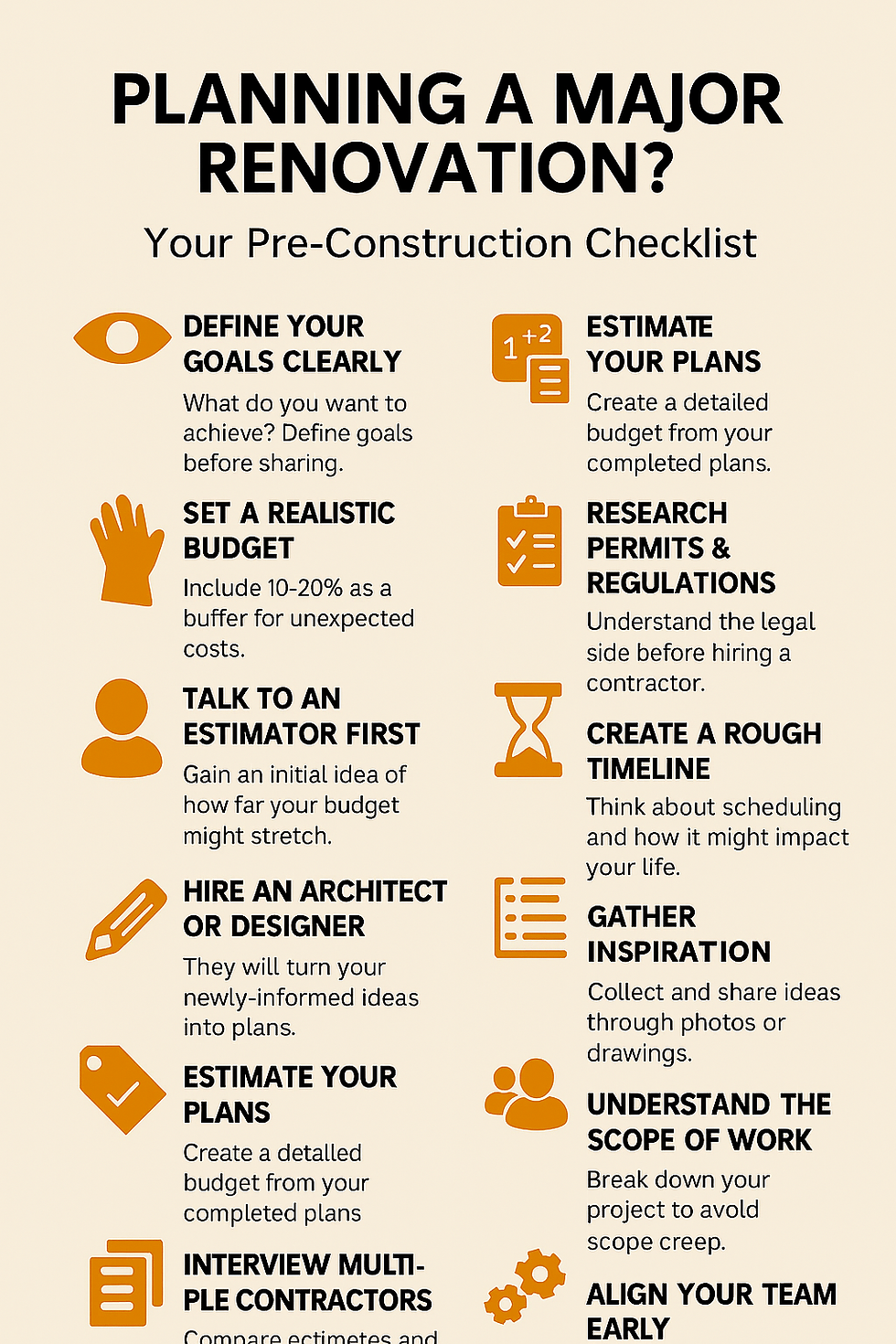Planning a Major Renovation? Here’s What to Do Before You Call a Contractor
- Deen Gabriel

- Nov 19, 2025
- 2 min read
Embarking on a major renovation is exciting, but it can also be overwhelming if you’re not properly prepared. Before you pick up the phone to call a contractor, there are critical steps you should take to ensure your project runs smoothly, stays on budget, and delivers the results you envision. Here’s your pre-construction roadmap.

1. Start With an Idea
Every renovation begins with a vision. Think about what you want to achieve: more space, modern finishes, improved energy efficiency, or increased resale value. Collect inspiration from magazines, websites, or even friends’ homes. At this stage, you don’t need exact measurements, just a clear sense of your goals.
2. Work With a Designer or Architect to Draw Up Plans
Once your ideas are defined, the next step is to turn them into actual building plans. These drawings provide the details, dimensions, layouts, and specifications, that contractors and estimators need to work from. Without plans, it’s impossible to calculate accurate costs because there’s nothing concrete to measure.
3. Get a Professional Estimate Based on the Plans
With plans in hand, you can now approach a building estimating firm. A professional estimate gives you:
A detailed cost breakdown tied directly to your drawings
Insight into material and labor pricing
A benchmark to compare contractor bids
This step ensures transparency and helps you avoid budget surprises later.
4. Set a Realistic Budget
Use your estimate to establish a budget. Include a contingency buffer of 10 to 20 percent for unexpected expenses. Remember to factor in permits, inspections, and temporary living arrangements if needed.
5. Research Permits and Regulations
Depending on your location and scope, you may need permits for structural changes, plumbing, electrical work, or zoning adjustments. Understanding these requirements early prevents delays and fines later.
6. Create a Rough Timeline
Think about when you want the project to start and finish. Consider seasonal factors, family events, and contractor availability. A rough timeline helps you plan logistics and manage expectations.
7. Interview Multiple Contractors
Now you’re ready to meet contractors. Share your plans and professional estimate, and ask for detailed bids. Look for transparency, experience, and communication skills, not just the lowest price.
The best renovations start with smart planning. Begin with an idea, turn it into detailed plans, and then secure a professional estimate before engaging contractors. This sequence ensures you know exactly what you’re building, how much it will cost, and how to keep your project on track.






Comments